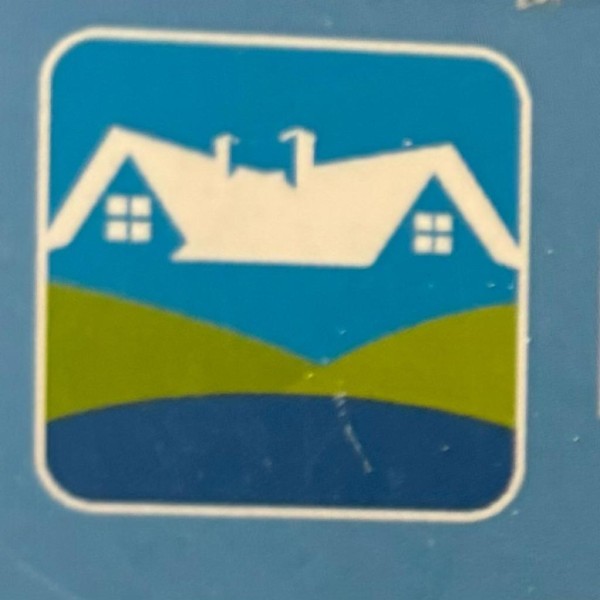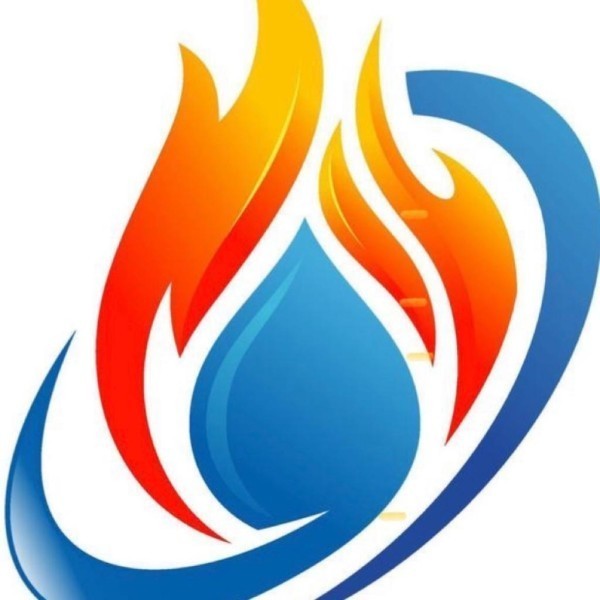Boiler/Heating Engineers in Great Dunmow
Welcome to Bellhouse Installations LTD, your trusted partner for all plumbing, boiler, heating, and bathroom fitting needs in the heart o... read more »
Welcome to Essex Eco LTD, your go-to experts for all things related to boiler and heating engineering, as well as renewable energy soluti... read more »
Welcome to All Seasons, your go-to Boiler and Heating Engineers based in Gilston, proudly serving Hertfordshire and its surrounding areas... read more »
JSWM Mechanical Ltd, based in Standon, is your trusted partner for all tradespeople services across Hertfordshire. Speci... read more »
Welcome to RDS Design, your trusted Boiler and Heatin... read more »
Welcome to Elsey & Co, your trusted Boiler and Heatin... read more »
AM Gas Services Ltd is your go-to so... read more »
Hart's Plumbing and Heating Ltd is y... read more »
Welcome to First Choice Drainage Solutions, your go-t... read more »
Welcome to GASsafe, your trusted partner for top-notc... read more »
Welcome to Ecoheat UK East Anglia Ltd, your trusted B... read more »
Welcome to 1st Fix Home Improvements, your go-to expe... read more »
Welcome to DW Heating Plumbing, your trusted partner... read more »
Welcome to Circle Plus Ltd, your trusted partner for... read more »
Welcome to N.W. Plumbing & Heating, your go-to expert... read more »
Welcome to Essex Trade Services, your go-to solution... read more »
Russell Eco Heat: Premier Boiler and Heating... read more »
Welcome to JTG Heating Services, your go-to experts f... read more »
Welcome to The Artisans Group Ltd, your go-to experts... read more »
SI Property Services: Premier Boiler and Heat... read more »
Search Boiler/Heating Engineers in places nearby
- Boiler/Heating Engineers in Chelmsford
- Boiler/Heating Engineers in Southend-on-Sea
- Boiler/Heating Engineers in Basildon
- Boiler/Heating Engineers in Billericay
- Boiler/Heating Engineers in Braintree
- Boiler/Heating Engineers in Brentwood
- Boiler/Heating Engineers in Brightlingsea
- Boiler/Heating Engineers in Burnham-On-Crouch
- Boiler/Heating Engineers in Canvey Island
- Boiler/Heating Engineers in Chigwell
- Boiler/Heating Engineers in Chipping Ongar
- Boiler/Heating Engineers in Clacton-On-Sea
- Boiler/Heating Engineers in Colchester
- Boiler/Heating Engineers in Epping
- Boiler/Heating Engineers in Frinton-On-Sea
- Boiler/Heating Engineers in Grays
- Boiler/Heating Engineers in Halstead
- Boiler/Heating Engineers in Harlow
- Boiler/Heating Engineers in Harwich
- Boiler/Heating Engineers in Loughton
- Boiler/Heating Engineers in Maldon
- Boiler/Heating Engineers in Rayleigh
- Boiler/Heating Engineers in Saffron Walden
- Boiler/Heating Engineers in Stansted Mountfitchet
- Boiler/Heating Engineers in Tilbury
- Boiler/Heating Engineers in Waltham Abbey
- Boiler/Heating Engineers in Walton-On-The-Naze
- Boiler/Heating Engineers in West Mersea
- Boiler/Heating Engineers in Wickford
- Boiler/Heating Engineers in Witham
- Boiler/Heating Engineers in Wivenhoe
Understanding the Role of Boiler/Heating Engineers in Great Dunmow
Boiler and heating engineers play a crucial role in ensuring the comfort and safety of homes and businesses in Great Dunmow. These skilled professionals are responsible for installing, maintaining, and repairing heating systems, which are essential for providing warmth and hot water. In this article, we will explore the various aspects of their work, the importance of their services, and how to choose the right engineer for your needs.
The Importance of Heating Systems in Great Dunmow
Great Dunmow, like many parts of the UK, experiences cold winters, making heating systems vital for maintaining a comfortable indoor environment. A reliable heating system not only provides warmth but also ensures the availability of hot water for daily activities. Without proper heating, homes and businesses can become uncomfortable and even unsafe during the colder months.
Types of Heating Systems
- Central Heating Systems: These systems distribute heat from a central source, such as a boiler, to various parts of a building through a network of pipes and radiators.
- Underfloor Heating: This system involves installing heating elements beneath the floor, providing even heat distribution and freeing up wall space.
- Electric Heating: Electric heaters convert electrical energy into heat, offering a convenient option for smaller spaces or supplementary heating.
Key Responsibilities of Boiler/Heating Engineers
Boiler and heating engineers in Great Dunmow are tasked with a variety of responsibilities to ensure the efficient operation of heating systems. Their expertise covers a wide range of tasks, from installation to emergency repairs.
Installation of Heating Systems
One of the primary duties of a heating engineer is the installation of new heating systems. This involves assessing the specific needs of a property, recommending suitable systems, and ensuring proper installation to maximise efficiency and safety.
Regular Maintenance and Servicing
Regular maintenance is essential to keep heating systems running smoothly. Engineers perform routine checks, clean components, and identify potential issues before they become major problems. This proactive approach helps extend the lifespan of the system and improves energy efficiency.
Emergency Repairs
Heating systems can sometimes break down unexpectedly, especially during peak usage periods. Boiler and heating engineers are equipped to handle emergency repairs, restoring warmth and comfort to homes and businesses as quickly as possible.
Qualifications and Skills of Boiler/Heating Engineers
To become a qualified boiler or heating engineer, individuals must possess a combination of technical skills, certifications, and practical experience. This ensures they can safely and effectively work on various heating systems.
Essential Certifications
- Gas Safe Registration: Engineers working with gas appliances must be registered with Gas Safe, the official gas safety organisation in the UK.
- NVQ/SVQ Qualifications: National Vocational Qualifications (NVQs) or Scottish Vocational Qualifications (SVQs) in plumbing and heating are often required.
- Apprenticeships: Many engineers start their careers through apprenticeships, gaining hands-on experience while studying.
Technical Skills
Boiler and heating engineers must have a strong understanding of mechanical systems, electrical components, and safety protocols. They should be adept at diagnosing issues, performing repairs, and communicating effectively with clients.
Choosing the Right Boiler/Heating Engineer in Great Dunmow
When selecting a boiler or heating engineer, it's important to consider several factors to ensure you receive high-quality service. Here are some tips to help you make an informed decision.
Check Credentials and Experience
Verify that the engineer is Gas Safe registered and has the necessary qualifications. Experience is also crucial, as seasoned engineers are more likely to have encountered a wide range of issues and can provide effective solutions.
Read Reviews and Testimonials
Customer reviews and testimonials can provide valuable insights into the quality of service provided by an engineer. Look for feedback on reliability, professionalism, and the overall satisfaction of previous clients.
Request Quotes and Compare Prices
Obtain quotes from multiple engineers to compare prices and services offered. While cost is an important factor, it should not be the sole determinant. Consider the value provided and the engineer's reputation.
Benefits of Regular Heating System Maintenance
Regular maintenance of heating systems offers numerous benefits, from improved efficiency to enhanced safety. Here are some reasons why scheduling routine maintenance is a wise investment.
Increased Energy Efficiency
Well-maintained systems operate more efficiently, reducing energy consumption and lowering utility bills. Engineers can optimise settings and clean components to ensure peak performance.
Extended System Lifespan
Routine maintenance helps prevent wear and tear, extending the lifespan of heating systems. By addressing minor issues early, engineers can prevent costly breakdowns and replacements.
Enhanced Safety
Regular checks ensure that heating systems operate safely, reducing the risk of gas leaks, carbon monoxide poisoning, and other hazards. Engineers can identify and rectify potential safety concerns.
Common Heating System Issues and Solutions
Heating systems can encounter various issues over time, affecting their performance and reliability. Here are some common problems and how engineers can address them.
Uneven Heating
Uneven heating can result from air trapped in radiators, faulty thermostats, or imbalanced systems. Engineers can bleed radiators, calibrate thermostats, and adjust system settings to resolve the issue.
No Hot Water
A lack of hot water may be due to a malfunctioning boiler, faulty valves, or issues with the water supply. Engineers can diagnose the problem and perform necessary repairs or replacements.
Strange Noises
Unusual noises, such as banging or whistling, can indicate issues like airlocks, sediment buildup, or pump failures. Engineers can inspect the system, clean components, and replace faulty parts to eliminate the noise.
Environmental Impact of Heating Systems
Heating systems contribute to energy consumption and carbon emissions, impacting the environment. Engineers play a role in promoting eco-friendly practices and technologies.
Energy-Efficient Technologies
Modern heating systems incorporate energy-efficient technologies, such as condensing boilers and smart thermostats, to reduce energy usage and emissions. Engineers can recommend and install these systems to minimise environmental impact.
Renewable Energy Solutions
Engineers can also advise on renewable energy solutions, such as solar thermal systems and heat pumps, which harness natural resources to provide heating and hot water. These options offer sustainable alternatives to traditional systems.
Frequently Asked Questions
- What qualifications should a boiler/heating engineer have? Engineers should be Gas Safe registered and hold relevant NVQ/SVQ qualifications.
- How often should I service my heating system? It's recommended to service your heating system annually to ensure optimal performance and safety.
- What are the signs of a faulty boiler? Common signs include strange noises, uneven heating, and a lack of hot water.
- Can I install a new heating system myself? It's best to hire a qualified engineer to ensure safe and proper installation.
- How can I reduce my heating bills? Regular maintenance, energy-efficient systems, and smart thermostats can help lower heating costs.
- What should I do in case of a gas leak? Immediately evacuate the premises, avoid using electrical devices, and contact a Gas Safe registered engineer.
In conclusion, boiler and heating engineers in Great Dunmow provide essential services that ensure the comfort, safety, and efficiency of heating systems. By understanding their role, qualifications, and the benefits of regular maintenance, you can make informed decisions about your heating needs and contribute to a more sustainable future.








